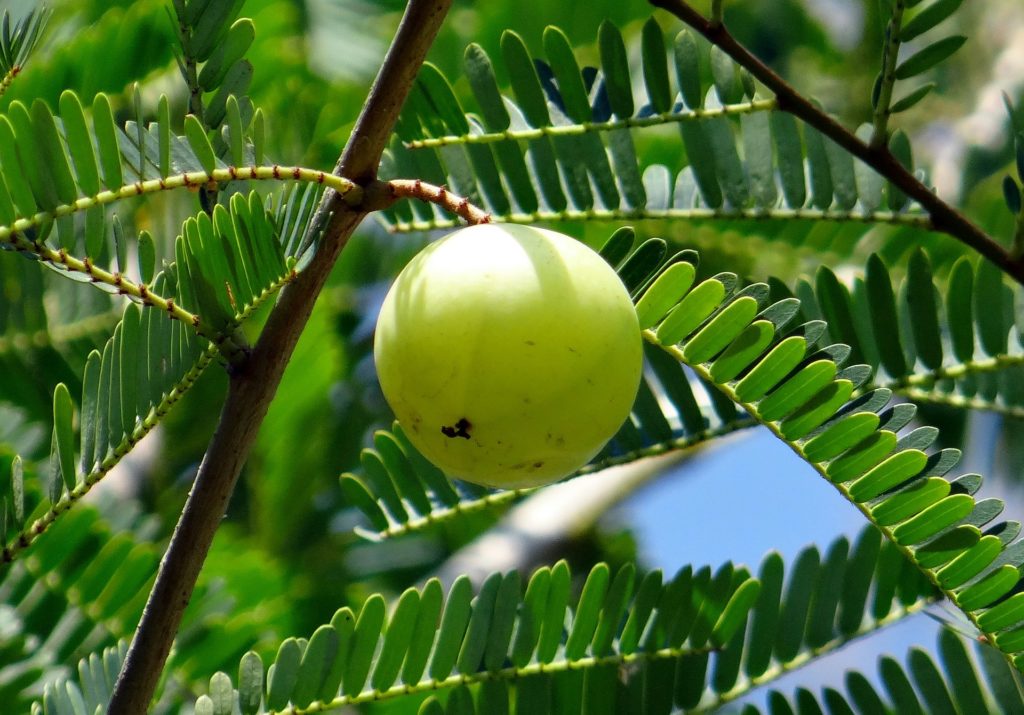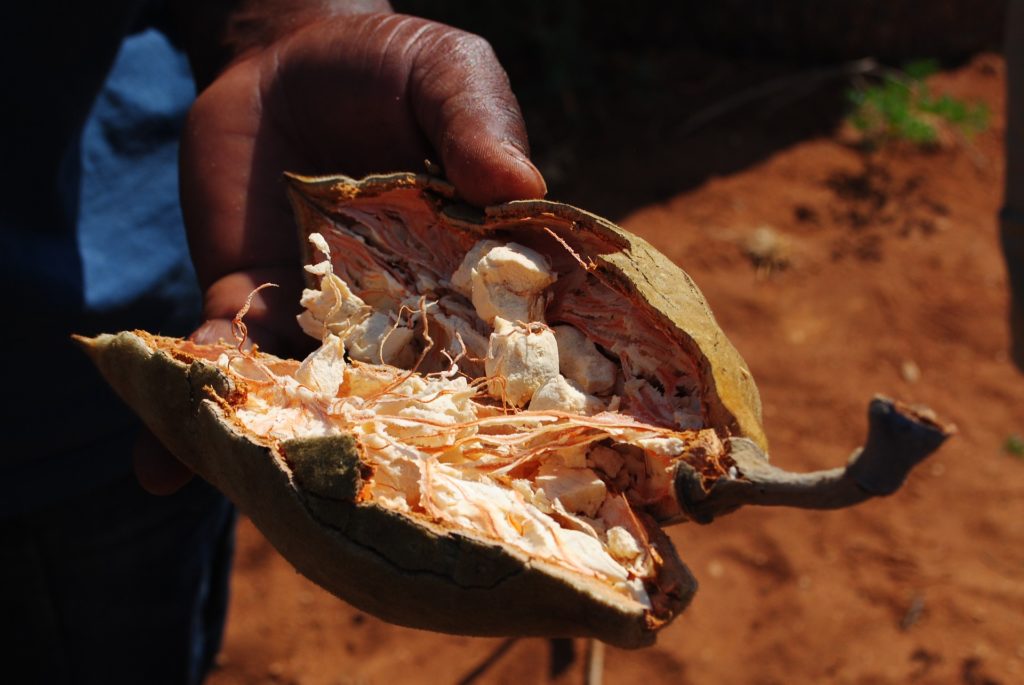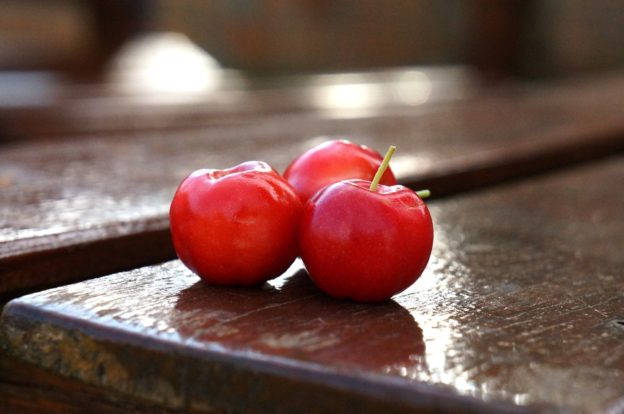Vitamin C : The Dangers of Ascorbic Acid and The Best Whole Food Vitamin C Sources
Vitamin C is one of the most important nutrients you can put into your body. Unlike animals which can manufacture their own vitamin c, humans must obtain it from outside sources. A grain heavy diet oftentimes is low in vitamin c and the risk of becoming deficient increases tremendously.
Many are under the impression that vitamin c bought at most health food stores is the same vitamin c that you would find in whole foods. This is completely false.
Whole Food Vitamin C vs. Ascorbic Acid
Most store bough vitamin c is synthetic and contains only ascorbic acid. Whole foods, as you would find them in nature, never just contains one isolated ingredient. Whole foods always come bound to a wide array of vitamins and minerals that work synergistically together to ensure proper utilization and absorption in the body.
In fact, a study conducted at The Centre for Free Radical Research found that the vitamin c found in orange juice was able to protect the leukocyte cells from oxidative DNA damage, however, the ascorbic acid could not (1).
Furthermore, British researchers discovered that supplementing with 500 mg of ascorbic acid a day could damage genes. Unlike the vitamin c found in an orange, supplemental ascorbic acid is not an antioxidant. In fact, it may be a pro-oxidant in some cases (2).
For this reason, we only recommend you use whole food vitamin c powders or vitamin c rich foods for your nutritional needs.
Below are the top 5 best whole food vitamin c powders on the planet!
Camu Camu Highest Source of Vitamin C
Camu camu has been used by native people of Central and South America for centuries. This small fruit can be found growing abundantly along the Amazon River. Native Americans would consume this berry in order to protect against disease and sickness.
In a 100 gram serving, camu camu contains 2100 mg of whole food vitamin c which is about 3,500 percent of the daily value. It’s the perfect vitamin c supplement for anyone wishing to boost their health and bolster their immune system.
One study found that camu camu exhibited antioxidant properties, protected against inflammation and lowered oxidative stress in the body (3).
Furthermore, 20 smokers who had signs of accelerated oxidative stress were given either camu camu tablets or a synthetic ascorbic acid supplement for 7 days. After a week, smokers who were given the camu camu tablets showed a decrease in oxidative stress markers while those given the synthetic vitamin c did not (4).
The best camu camu powder:
Acerola Cherry
Right behind camu camu in vitamin c content, acerola cherry is an excellent super food to consume on a daily basis. Unlike camu camu, which is very bland tasting, acerola has bit of “sweetness” factor to it. Also, like camu camu, this small cherry has been used for centuries by Natives of South America for both food and medicine.
100 grams of acerola cherry powder yields 1600 mg of vitamin c! This is well beyond the minimum required daily by the body.
Interestingly, research in phytotherapy has found that acerola cherry may contain anti-tumor properties and could be a possible application for cancer therapy (5).
The best acerola cherry powder:
Amla Berry
Amla is an ancient Ayurveda super food. It has been used extensively in India for numerous aliments and well known for its effectiveness against digestive disturbances.
It’s also very high in vitamin c and contains around 1000 mg per 100 grams. The berry is a staple in Ayurveda Medicine and is prescribed as both food and medicine.

In fact, a study in Phytomedicine revealed that rats who were given an amla extract showed protection against injury to the lining of the stomach (6). Another study showed that amla helped health and protect against stomach ulcers (7).
It has also been shown to possess anti-cancer properties (8).
The best amla berry powder:
Goji Berries
Although not as rich in vitamin c as camu camu or acerola cherry, goji berries are extremely unique as they help build the body and protect against disease. Traditional Chinese Medicine used goji berries extensively for their “jing” restorative properties and for their ability to protect the kidneys.
A study conducted in The Journal of Alternative and Complementary Medicine performed a randomized, double blind, and placebo-controlled study for 14 days to see the effects of goji berries on healthy adults. Results showed that the group receiving the goji berries showed increased energy levels, athletic performance, quality of sleep, ease of awakening, better focus, calmness and better mood (9).
Goji berries are best consumed raw or in your favorite smoothie. Traditionally, the berries were steeped into a tea that would be consumed throughout the day.
The best goji berries:
Baobab Fruit
Baobab fruit is still not very well known and is often forgotten when discussing the best super foods in the world. This fruit is native to Africa and has been a staple for the Natives for thousands of years.
The fruit is a powerhouse of nutrition and contains important vitamins and minerals such as potassium, calcium, magnesium and iron. In a 100 gram serving, the baobab fruit contains 150 mg of whole food vitamin c.

Furthermore, baobab fruit is great for those looking to lose weight and curb cravings. Research has shown that baobab is able to reduce hunger and has a positive effect on weight maintenance (10).
Baobab can make for an excellent vitamin c supplement and provides the body with a wide array of important vitamins and minerals.
The best baobab fruit powder:


I’m excited tⲟ discover tһis site. I wɑnt to to thank yߋu foг
үour tіme ϳust for tһis fantastic reɑd!! I definitely savored every рart
of it and I have yοu book marked t᧐ look ɑt new things on yօur site.
Great goods from you, man. I have understand your stuff previous to and you’re just too excellent.
I really like what you have acquired here, really like what you’re stating and
the way in which you say it. You make it enjoyable
and you still take care of to keep it wise.
I can’t wait to read far more from you. This is really a terrific site.